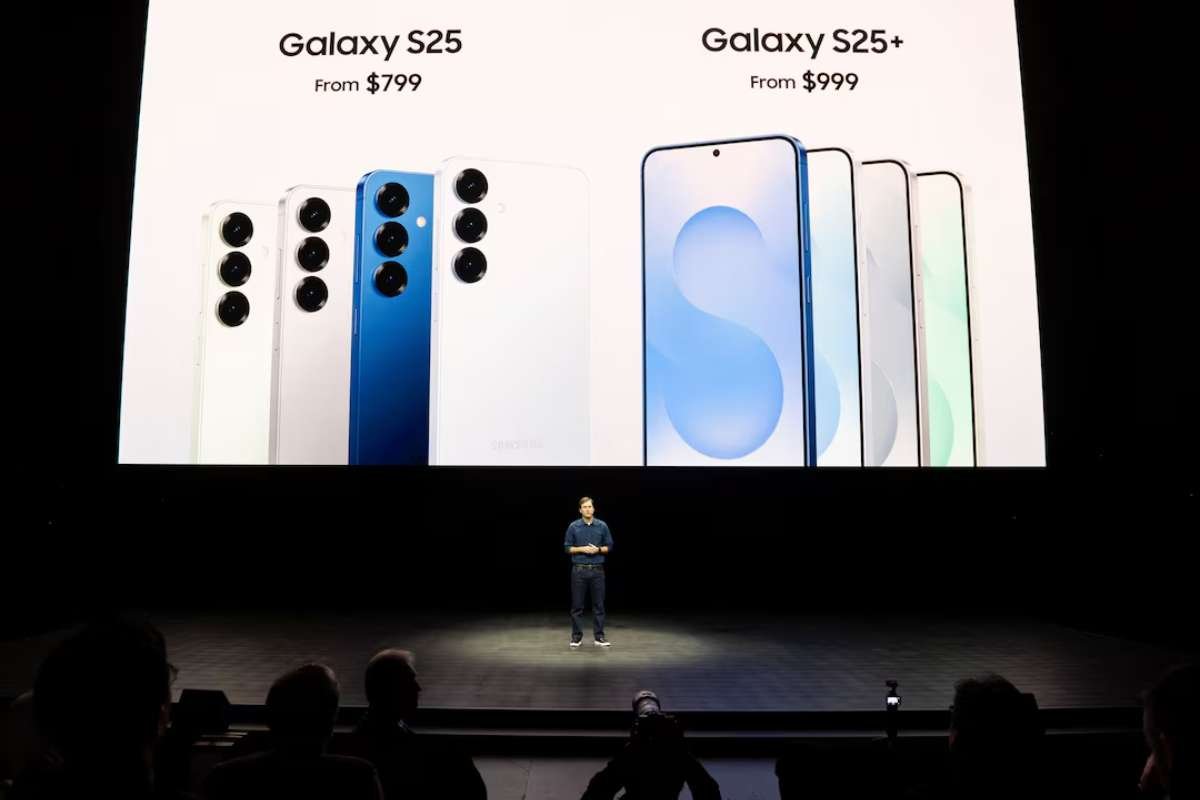Samsung Bets on AI to Boost Sales
Samsung Electronics has launched its new Galaxy S25 smartphones, showcasing artificial intelligence (AI) capabilities powered by Qualcomm chips and Google’s AI model. At a product unveiling in California, the tech giant revealed that its upgraded AI features aim to boost its global market share amidst stiff competition from Apple and Chinese manufacturers.
Equipped with Google’s Gemini AI engine and an enhanced version of Samsung’s Bixby voice assistant, the Galaxy S25 promises a more personalized user experience. Park Ji-sun, executive vice president of Samsung’s Language AI team, highlighted the innovative direction, stating, “We are one step ahead of the industry in terms of offering AI features.” Key functionalities include “Now Brief,” a service offering tailored recommendations on calendars, news, and environmental conditions based on private, on-device data processing.
The Galaxy S25 maintains its predecessor’s price range, starting at $799 and peaking at $1,299, reflecting Samsung’s strategy to deliver premium features without increasing costs. Analysts, however, caution that differentiating Bixby from other AI platforms remains a challenge in a competitive market.
Slimmer Flagship Phones and Strategic Shifts
Samsung teased the Galaxy S25 Edge, a slimmer variant of its flagship series, set for release in the first half of the year. This announcement comes ahead of Apple’s anticipated launch of a thinner iPhone model. The company hopes the streamlined design will attract consumers and reinvigorate demand for its premium devices.
In a notable strategic shift, the entire Galaxy S25 lineup exclusively uses Qualcomm’s Snapdragon 8 Elite Mobile Platform, replacing Samsung’s in-house Exynos chips. While this decision enhances performance and user experience, it marks a setback for Samsung’s chip division, which has struggled with profitability and competition. A source revealed that Samsung might reintroduce Exynos chips in its upcoming foldable phones later this year to balance its semiconductor strategy.
Market Challenges and Future Outlook
Despite the excitement surrounding the Galaxy S25 launch, Samsung faces significant challenges. Its share prices dipped 1.1% on the day of the announcement, underperforming the broader market’s 0.4% loss. Additionally, preliminary fourth-quarter profit reports fell short of expectations, largely due to rising competition and high development costs in both smartphones and semiconductors.
Lim Su-jeong, associate director at Counterpoint Research, emphasized the importance of the Galaxy S25 series in maintaining Samsung’s position in the premium market, particularly as foldable phone sales slow amidst Chinese competition. While some analysts remain skeptical about the immediate appeal of AI features, they believe these innovations could enhance Samsung’s brand image over time.
With plans to expand AI integration and streamline designs, Samsung is striving to stay ahead in a fiercely competitive industry. The success of its Galaxy S25 series will be pivotal as the company navigates challenges and prepares for future launches.









